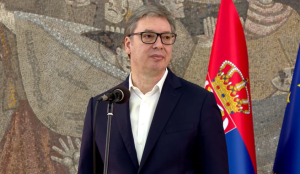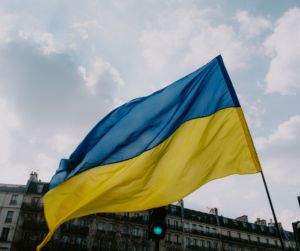The Independent Journalists’ Association of Serbia (IJAS) warns of a worrying trend of systemic discrimination against journalists and media workers, both offline and online, and calls for an urgent response from the competent institutions.
Some local journalists in Subotica did not receive an official invitation nor the possibility to obtain accreditation for yesterday’s ceremony at City Hall, where the “István Pásztor” Foundation presented awards to the President of Serbia, Aleksandar Vučić, and the Prime Minister of Hungary, Viktor Orbán. According to local journalists, the City Media Center did not forward an official invitation to local newsrooms, so journalists were unable to apply for accreditation, while certain Belgrade-based media and some local Hungarian outlets were present at the event.
Such selective granting of access constitutes a form of discrimination and a denial of the public’s right to be informed, which is prohibited by law.
Earlier this week, an Radio-Television of Serbia (RTS) cameraman was expelled from Aleksandar Vučić’s press conference because he was wearing a badge with a bloody fist on his jacket. At that conference, Vučić criticised journalists and told them they must come “properly dressed and without symbols that insult the institutions of the state”, stating that the RTS cameraman would no longer be allowed to enter “unless he behaves properly”. The cameraman was removed from the conference solely because of the symbol on his jacket. This also represents unacceptable pressure and discrimination against a media worker, as well as a restriction of journalists’ freedom and their right to express an opinion, which can create further pressure on the journalistic profession and media freedom in general.
In parallel with these cases, coordinated attacks on journalists and media via social networks are also cause for concern. In recent days, the Instagram account of photojournalist Irena Radosavljević has been the target of coordinated “spamming” by fake accounts: within two hours, several thousand “followers” began following her. This is not the first such case. The accounts of “students in blockade” were also targeted, while the account of the “Kreni–promeni” (Go-Change) movement was shut down due to a sudden surge of “new followers”, given that Meta’s policy foresees removing accounts that are deemed to be “buying followers”. It is clear that the aim of such “actions” is precisely the removal of critical accounts.
On Wednesday, 26 November, the Instagram account of N1 Serbia was also shut down following a coordinated hacking attack. The N1 newsroom immediately contacted Meta support, after which the account was restored, but the attack itself speaks volumes about the scale of pressure on media outlets that report critically.
These attacks are part of a broader strategy to silence those who report and speak critically at a time when social networks are becoming a key channel for sharing information about developments in Serbia. According to this year’s report by the international organization Freedom House on internet freedom, Serbia has fallen into the category of “partly free” countries. The key reasons cited include state use of technologies to monitor activists, students and journalists, as well as increasingly frequent threats and physical attacks on journalists because of their reporting.
IJAS demands that the Presidency of Serbia, the Government and the City of Subotica ensure clear, transparent and non-discriminatory procedures for accrediting journalists for all events of public interest, including clear rules on publishing calls and application deadlines, and that responsibility be established for denying access to local journalists in Subotica.
The Prosecutor’s Office and the Ministry of Interior (MUP) should conduct an investigation into coordinated online attacks on the accounts of journalists, newsrooms and civic initiatives, taking into account possible elements of criminal offences, and inform the public about the results of that investigation.
Greater transparency and protection from abuse of the reporting system and “fake followers” is necessary, so that legitimate journalistic and activist accounts are not punished by being shut down, and this is something the competent institutions must actively work on.
IJAS recalls that it is the duty of institutions to ensure conditions in which journalists can report freely, ask questions and be present at events of public interest, without selective access, political favouritism or intimidation, whether in physical spaces or online.
Institutions that tolerate or themselves carry out discrimination against journalists directly contribute to the erosion of media freedom and the public’s right to be informed. Therefore, we will inform domestic and international organizations monitoring media freedom about these cases and will insist that they be taken into account in all future reports on the state of democracy and the rule of law in Serbia.
Independent Journalists’ Association of Serbia
Belgrade, 28 November 2025




